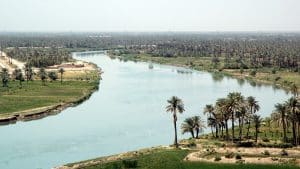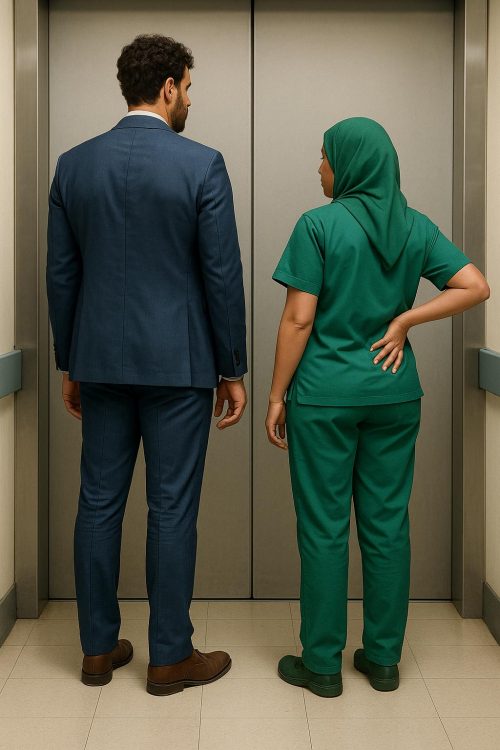Aggregator
Livestream: Arab states have leverage over US but won't use it
We speak with Sami Al-Arian about the role Arab states could play in stopping the genocide. Nora Barrows-Friedman covers Israel’s intensifying invasion of Gaza City, and Jon Elmer brings the latest news of the resistance confronting Israeli forces.
Donald Trump’s sharia law attack on Sadiq Khan outrages Labour MPs
Keir Starmer urged to take action over US president’s inflammatory speech to the UN
Keir Starmer is facing demands from Labour MPs to reprimand Donald Trump’s administration after the US president falsely claimed London wanted to “go to sharia law” under its “terrible mayor”, Sadiq Khan.
In an address to the UN general assembly, Trump said: “I look at London, where you have a terrible mayor, terrible, terrible mayor, and it’s been changed, it’s been so changed. Now they want to go to sharia law. But you are in a different country, you can’t do that.”
Continue reading...Why won’t Britain arrest Israeli war criminals?
Moonshot [Part 22] – A Still Burning Flame
Deek and Rania finally talk, and Rania – in pain and medicated – bares her heart.
Previous Chapters: Part 1 | Part 2 | Part 3 | Part 4 | Part 5 | Part 6 | Part 7 | Part 8 | Part 9 | Part 10 | Part 11 | Part 12 | Part 13| Part 14 | Part 15 | Part 16 | Part 17 | Part 18 | Part 19 | Part 20 | Part 21
* * *
So many tears
that your sorrows seize,
Flowing deep as Euphrates…
— Marwa al-Timimi
Rania came to stand right beside Deek, and still he didn’t see her. His eyes were faraway, and now that he was close, she saw that there were dark circles under his eyes, and a recently scabbed-over wound above his left eyebrow. His left eye seemed a little puffy as well. He wasn’t doing well.
On the one hand, she wanted to reach out to him and comfort him. But on the other hand, she took a certain satisfaction in knowing that he wasn’t out there partying and living the high life. He was suffering without her.
GravitySomeone touched Deek’s shoulder and he flinched. It was Rania, dressed all in green – green scrubs, hijab, and green leather walking shoes, with an ID badge on a lanyard around her neck. She had lost a little weight, which served to grant her visage a greater degree of gravity and beauty. There was a sheen of sweat on her face, and the way her brows drew together told him she was worried, unhappy or in pain.
“Are you okay?” Rania asked.
“Yeah.” He smiled nervously. “I was just remembering when Sanaya had whooping cough.”
Rania rubbed his shoulder. “That was a difficult time. But we got through it together.” She touched her own eyebrow, then pointed to Deek’s. “You got hurt.”
“Someone tried to carjack the Porsche.”
“La hawla wa la quwwata illah billah. I knew something was wrong. Hey, could we talk in the cafeteria? I haven’t eaten in hours.”
Deek wasn’t very hungry, but he could eat a little fruit salad.
In the elevator Deek shifted from foot to foot, and didn’t look at Rania.
“Do you want to tell me about what happened?” Rania asked.
Deek waved this off. “It’s nothing. I mean, another time.”
Rania nodded. “I hear you’re staying at the Marco Polo. Must be nice.”
“My room has a fountain. It’s lonely, though.” He said this last part without thinking, and immediately regretted it. He wasn’t ready to be that forthright.
The Same PersonThe corridor that led to the cafeteria was long and sterile. Photographs of nature scenes from Yosemite adorned the walls.
“I just finished a quilt,” Rania said. “It’s brown, blue and green. The colors of Iraq’s desert, farms, and rivers. I thought of you as I sewed it. Would you like to take it to your hotel room?”
The weather was a bit hot for a quilt, but as Deek thought about it, he realized the answer was yes, he would love to have with him something that came from Rania’s hands. He would sleep better with it in his arms.
“Sure. Thank you.”
Sitting in the cafeteria, Deek watched as Rania took a disconsolate bite of a tuna sandwich.
“I’ve missed you,” Deek said.
“You could have called or come home anytime.”
“I miss the old Rania. The one who was good to me. I’ve been thinking about the past. I wish I could go back in time.”
She gave a grimace. “I’m still the same person.”
Changing the subject, Deek asked if she had received the other hundred thousand he’d transferred.
Rania did not meet his eyes. “Yes. It’s generous, thanks.”
“I sent something with the girls.”
“I haven’t seen them since this morning.”
 He ate a strawberry. “You’re having a bad day?”
He ate a strawberry. “You’re having a bad day?”
“A patient died.”
“I’m sorry to hear that. A child?”
Rania tucked her chin into her chest. “I don’t want to talk about it.”
Deek had not failed to notice the way Rania sat stiffly in her chair, and shifted her weight from one leg to another.
“Does your back hurt?”
She seemed about to say something, but then a wave of irritation or anger washed over her, and she said, “Oh, now you’re concerned? That’s rich.”
Deek restrained the urge to get up and walk away. He speared a banana slice with his fork and popped it into his mouth.
Par For The Course“Sorry,” Rania said a little while later.
Deek gave a bitter, lopsided smile. “Par for the course.”
“What does that mean?”
“I’m used to it.”
“Oh, really?”
He took a breath. This wasn’t how he had wanted this to go, but maybe this was how it had to go. “Do you remember last Thursday? I made a trade that earned one point seven million dollars. That was the moment everything changed. I jumped up and I was shouting I did it, I did it. Do you remember?”
Rania blinked several times, then nodded slowly. “Yes. I remember.”
“Do you remember what you said?”
“You have to understand. I didn’t know at that time that you had earned one point seven million dollars. And I was upset because you refused to have dinner with me.”
“Do you remember when I came to see you at the hospital the next day, just before Jum’ah?”
Rania winced. “I’m the bad guy, is that your point?”
“I could go on and on. Do you remember when Amira wanted an electric scooter and you said, ‘If there were two productive adults in this house, maybe, but with only one person working and one sitting at home eating potato chips -”
“I think I was having some back pain that da-”
“Or two months ago, when you came home with Shannon and Anisah, and they ran me down?”
Rania went pale. “I didn’t know you heard that.”
“I was in the kitchen getting a drink. It’s not what they said that hurt me, though. It was your silence. And the time when I tried to hug you, and you pushed me away and said I looked like a bum, and you were embarrassed to invite people over.”
Rania sat back and crossed her arms. “You sound like one of your computers spitting out data. You have a whole list of my mistakes. How about keeping a list of all the good I’ve done for you and our family?”
It’s A Shock“I’m just saying, the most recent incidents were the straws that snapped this Iraqi camel’s back.”
Rania stood, leaving her sandwich uneaten. “I apologize. I was obviously a bad wife.”
“No. You were the best wife in the world for almost our entire marriage. Anyway, before you go, we need to talk about money. Could you sit please?”
Rania sat reluctantly, arms still crossed across her chest.
“I set up a corporation called Milestone. It will send you thirty thousand dollars every month, starting on the first.”
 Rania’s eyes grew wide. “Thirty thousand dollars? For how long?”
Rania’s eyes grew wide. “Thirty thousand dollars? For how long?”
Deek noticed a young medical technician – a tall blond guy with a chunky, papaya-shaped body – eating a slice of carrot cake and watching them under his brows. He motioned to Rania to keep her voice down.
“Ongoing. Also, Sanaya and Amira will receive smaller monthly payments. And take this.” He removed an orange and black card from his pocket and handed it to her. “It’s a Milestone debit card. It has a monthly limit of ten thousand dollars. The pin is the month and year we got married.”
“What if I don’t remember the month and year we got married?”
Deek raised his hands in a shrug. “Then we’re both in trouble.”
“And this is all from the cryptos?”
The question annoyed him. “Do you still doubt that? You saw me slaving away in that closet like a zoo animal for five years. You think, what? I robbed a bank? Or became a drug dealer?”
“No, habibi.” She passed a weary hand over her eyes, and Deek felt a surge of compassion. He’d come here to tell her he loved her, and to ask her advice about how to handle the money. Not to fight. Yet the anger and resentment had spewed forth.
“I know it’s from the crypto,” Rania went on. “I believe you. It’s just a shock, can you understand that?”
“Yes of course. There’s more. I’ve made a lot of money.”
“I think we’ve established that.”
“More than you realize. I need guidance on what to do with it.”
“Why ask me?”
Deek’s heart fell. This wasn’t what he’d hoped for. “Because you’re my wife. This money is for us, our family. It will change all our lives, inshaAllah.”
Rania’s jaw hardened. “I don’t care about all of that.”
Deek’s mouth opened, then closed. What was he supposed to say? Wanting to push her, to get a reaction, a protest, an argument, anything, he said, “Do you still want half of everything I earned?”
Rania’s face hardened. “Now you’re just trying to provoke me.”
Deek looked away. “It’s literally what you asked for.”
Rania stood blinking for a moment, then her face hardened into resolve. “You picked a bad day to come at me with this.” She turned and walked away.
Deek remained sitting. Too late, he remembered Rania’s back pain, and the patient she’d lost. Why hadn’t he kept his stupid mouth shut? With rounded shoulders, eyes fixed on the table, he forked an apple slice and munched on it. He felt bitter and disappointed in himself, in Rania, and in the world. Weariness washed over him again. It seemed he was tired all the time lately. He finished the fruit salad and trudged out to the car.
In the parking lot, he started the car, headed toward the parking lot exit – then circled back around slowly, thinking. What was waiting for him at the Marco Polo? The gorgeous hotel room was starting to feel like a prison cell.
Again he cruised toward the exit and again he circled back. He stopped the car in the middle of a row and put his forehead to the steering wheel. He could not go back inside the hospital. Rania would burst her top. It was time to leave. He raised his head – and saw a vision that made his breath stall in his chest.
A One Way TripRania stood frozen outside the pediatrics doors, pain radiating down her back and hip. She fingered her badge, thinking.
Going through those doors would mean making a choice. It was a one way trip, like a newly built ship heading downriver and out to sea, never to return to the shipyard. She wasn’t ready for that.
She buzzed the intercom, and informed the nurse at the station – Chea – that she was taking another 20 minutes off for personal reasons. Then she turned her back on the double doors and ran, or tried to. With the third or fourth stride, the pain made her stumble, and she put a hand against the wall. Standing up straight, she settled for walking fast.
Each step was a shot of agony in her lower back and hip. It felt like someone had attached a small vise to her right hip bone, and was steadily tightening the screw. But she clenched her teeth and took it like a woman.
It was hopeless. Deek was probably gone. But she continued all the way to the parking lot, where she walked up and down the rows in the cool evening air, searching for the little black Porsche. There was no sign of it.
She stood, feeling desolate, then was about to go back into the hospital when a voice called out, “Rania?”
 She turned and there was Deek, sitting in the passenger seat of a small blue SUV. He’d pulled up to the passenger loading roundabout. She opened the front passenger door and climbed into the car, settling back into the seat with a groan.
She turned and there was Deek, sitting in the passenger seat of a small blue SUV. He’d pulled up to the passenger loading roundabout. She opened the front passenger door and climbed into the car, settling back into the seat with a groan.
“What’s this car? Another impulse buy?”
“Sort of. I sold the Porsche.”
“That car didn’t even last as long as one of my diets.”
“It was cursed. Allah have mercy on it.”
She gave him an incredulous look, then burst out laughing.
All These Things And MoreDeek was stunned when he saw Rania wandering the parking lot like a woman in the desert, searching for an oasis. Was she looking for him? What was this, a scene in a romantic movie? More likely she wanted to blast him for the things he’d said.
Girding himself against the coming storm, he called her name.
When she entered the car, then laughed at his comment about the Porsche, he was caught off guard, not to mention relieved. This was like the Rania of old, who could disarm him with humor, and whose laugh could have broken down the walls of Babylon.
“Deek, habibi,” she said. “You did a lot of talking. Can I talk now?”
“Sure.” He cruised to a parking spot and shut off the engine.
“Look at me,” Rania said.
He met her dark eyes, tight with anxiety or pain.
“I am deeply sorry that I was not nice to you the last several months.”
“The last two years,” Deek interrupted.
She dropped her chin to her chest. “The last two years. The financial pressure was crushing me, and I reacted badly. But not everything is so black and white as you think. Look at this.” She took out her phone, scrolled for a moment, then showed him a text message. It was a group text from her to Anisah and Shannon, and it read:
As-salamu alaykum sisters. Your comments about my husband today were neither invited nor appropriate. I should have spoken up at the time but I was caught off guard. Deek is a good man and I’m proud to be with him. I think it’s best if we press pause on our friendship.
“I sent that the same day. I’m sorry I didn’t speak up right at the moment. I was shocked by their words and my tongue got tied.”
Deek’s chest swelled upon reading the message. He wanted to nod and say, That’s my wife! But he merely said, “I didn’t know.”
“There are many things you don’t know, Deek Saghir, and you would do well to remember that. Anyway. I also regret being friendly with Dr. Townsend, but please know that I never did anything inappropriate with him, and never would.”
“If you had, I would have drowned him in the river.”
Rania snorted. “You and drowning in the river. Always talking about drowning yourself or drowning somebody else. It’s creepy.”
“You know I grew up on the banks of the – “

Tigris River in Iraq
“The Euphrates, I know. And I grew up on the Tigris, so what? I dream of swimming in the river, Deek, not drowning. Swimming.” She made swimming motions with her arms.
This made Deek smile, but he did not want to smile, and made a conscious effort to erase it.
“And,” Rania went on, “just for the record, I do not care about him at all. I love you. I love your strength and determination. The way you set your mind to something and never give up. You mentioned Sanaya’s sickness, all those years ago. Do you think I have forgotten, or could ever forget, the way you sat with her at night, making dua’ to Allah to save her? The little gifts you always bring me, the way you massage my feet when I come home after a long day at the hospital? The thousand times you sat on the floor with the girls, teaching them to play chess, and hearts, and Chinese checkers. Your kindness, your generosity. You see someone in pain, you help them, it’s your way. All these things and more I love about you, my great Iraqi prince. If my love for you on our wedding day was hot and passionate, then it is a still burning flame, as powerful as ever. I’m trying to hold on to you, but it’s like holding on to an electric eel. You have to do your part as well.”
Prince Of Lands“So I’m an eel now.”
Rania threw up her hands in frustration. “That’s what you got out of everything I said?” She took a breath and let it out, calming herself. Calling up a memory, she smiled.
“Deek, habibi, do you remember the poem I recited to you at our wedding?”
“What poem?” This was a deflection. Of course he remembered. It was an ancient Iraqi poem by the scholar Marwa Al-Timimi. Deek had been so touched by Rania’s recital that he had memorized it.
Rania recited the poem now:
If Allah makes you a prince of lands,
Riding steeds through desert sands,
Owning cattle, barley, date,
I will share your blessed fate.
And if He wills it all away,
Leaves you hungry, in dismay,
Friends depart, you lie in dust,
By your side I’ll stay in trust.
Should you laugh with joy profound,
Back teeth gleaming, cheerful sound,
Or if you weep with tears of lime,
Bitter streams through sands of time—
So many tears that your sorrows seize,
Flowing deep as Euphrates,
Whether joy or grief you view,
I stand with you.
***
Come back next week for Part 23 inshaAllah
Reader comments and constructive criticism are important to me, so please comment!
See the Story Index for Wael Abdelgawad’s other stories on this website.
Wael Abdelgawad’s novels – including Pieces of a Dream, The Repeaters and Zaid Karim Private Investigator – are available in ebook and print form on his author page at Amazon.com.
Related:
The post Moonshot [Part 22] – A Still Burning Flame appeared first on MuslimMatters.org.
‘Send your daughters or you get no aid’: the Taliban are making religious schools girls’ only option
Food handouts and employment are increasingly tied to Afghan families’ agreement to strict Islamic education
When the Taliban returned to power in Afghanistan in August 2021, Nahid, 24, was midway through an economics degree. She had hoped to work in a university after she graduated.
Instead, Nahid now spends her mornings at a religious school in the basement of a mosque in the western city of Herat, sitting on the floor and reciting scripture with 50 other women and girls, all dressed in black from head to toe.
Continue reading...Am I intimidated by the English flag?

Recently there has been a movement, spearheaded by Stephen Yaxley-Lennon (the football hooligan and racist rabble-rouser known as Tommy Robinson) and his associates to fly both British and English flags off buildings and lampposts, as well as the more traditional flagpoles, pretty much wherever they are. The campaign has been accompanied by the usual claims from Reform supporters and the like on GB News that anyone who objects is a snob, or a woke lefty who despises the ‘real’ white working class. Matt Goodwin posted a video taken from a car driving down a street in Rednall, on the south-western outskirts of Birmingham, in which flags had been attached to every lamppost (in this case Union flags; in other cases they have been St George’s Crosses or a combination of the two), and in the accompanying tweet called it “act of resistance against mass uncontrolled immigration, broken borders, the decision by politicians to house illegal migrants in the heart of their communities, and the loss of their national identity”.
The other day I saw a video, on a motorcycling channel on YouTube, titled “Does the Saint George’s flag offend you??”. The simple answer to this is no. (YouTube apparently blacks out any flags that are posted by emoji in the comments; this was assumed to apply only to that flag.) But the context and atmosphere in which these flags are being posted does. We have seen footage of louts painting flags on other people’s property, while racially abusing Asian people who just happened to drive onto the scene to do shopping. We have seen footage of council workers being assaulted, in one case by someone trying to remove the ladder he was standing on, while removing unauthorised flags or just while working on the pole or mast the flag was attached to. If flags are flown from public property such as lampposts and not attached properly, they can become a safety hazard, for example by falling into a cyclist’s or motorcyclist’s face, obscuring their vision; if they just fall off, they become litter. In many cases the flags were the wrong way up, representing a signal of distress, not a show of pride. It’s quite right that some councils want to remove unauthorised flags; it doesn’t mean they “hate the English” or “despise the working class”. It means they want to keep their districts clean and looking civilised, and keeping their character.
In a recent debate at the London Assembly, a Tory assembly member named Emma Best, having made some now common accusations that “the Left — people like you, people like the mayor — exaggerate and lie about members of the Right, and this … will lead to more violence” (having already mentioned the murder of Charlie Kirk), suggested that the best way to ‘reclaim’ the St George’s flag would be to fly it at City Hall and across the GLA and TfL (Greater London Authority and Transport For London) estate. The deputy mayor did not answer the question adequately, mumbling about how she had been born here and supported the English football team, and thought that Britain at its best was seen in the Second World War and in the welcoming of refugees from Ukraine, as “a place of inclusion and tolerance”. The TfL estate consists of things like railway stations and depots as well as bus and tram stations and maintenance depots; a brief glance at the Google Street View images of many TfL rail stations shows that they do not have flagpoles. Of those I looked at, only Embankment had one, and sometimes this was empty and sometimes it carried the Union flag. To fly flags at stations would require flagpoles to be installed, which would cost a lot of money that could be spent on improving the service; station staff also have enough to do without having to worry about raising or lowering flags when it’s deemed appropriate.
But the other answer to Emma Best’s question is that the flying of flags is something we do on special occasions, to celebrate or to commemorate. Aside from government buildings, and at military bases and the like, we see them at war memorials as well as on village greens. Companies use it to indicate a British product, though this can often mean British design rather than British manufacture. We do, of course, see flags flying when a British sports team is in an international tournament and when it is the English football team, the flag will be the English one. However, there is nothing traditional in this country about flying flags everywhere and attaching them to every lamppost, least of all by people who do not know how to fly them properly, and the persistent display of flags outside of competitions has a menacing overtone, reminiscent of its use for sectarian purposes in places like Northern Ireland. And it’s nothing for us to be proud of to have thugs roaming the streets, waving flags in people’s faces who didn’t ask for it, painting them on other people’s property without permission and then attacking or threatening council workers who try to remove them, or anyone they meet who looks different from them. It’s not a spontaneous display of national pride; it’s an ugly wave of incivility and thuggery from the worst of British.

